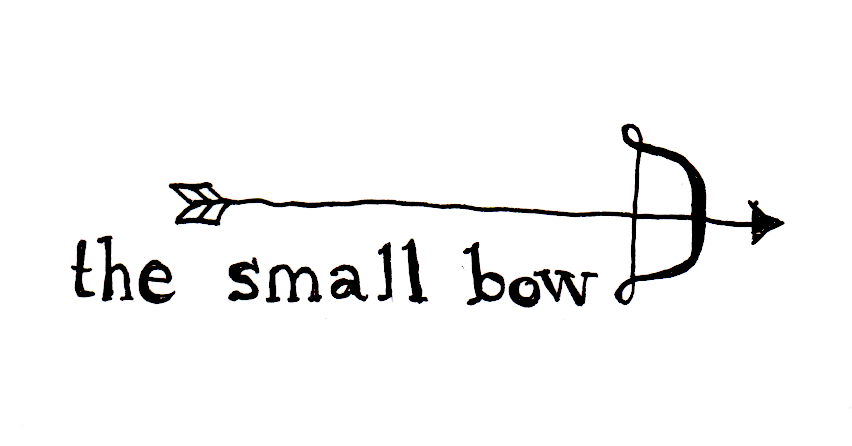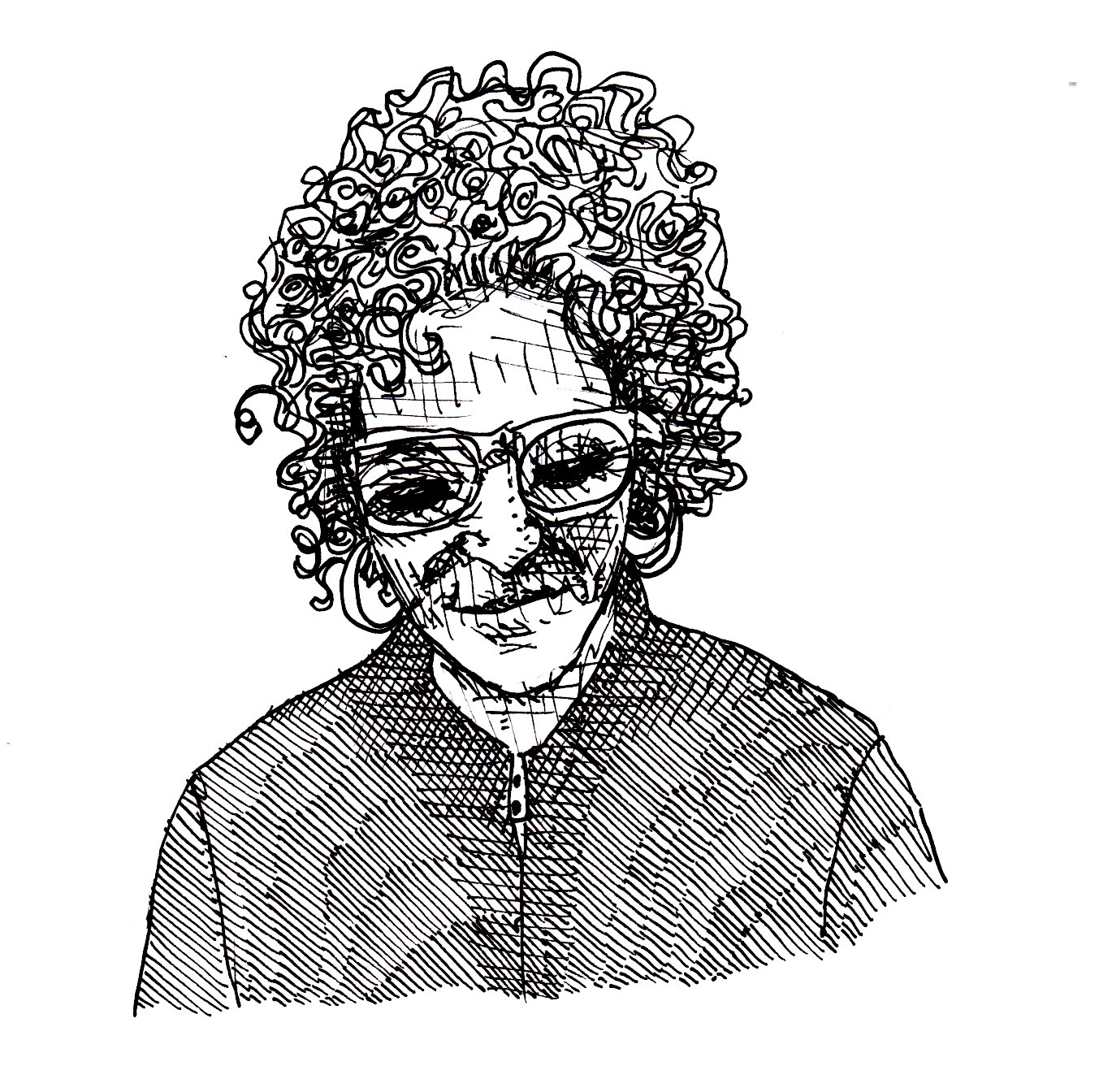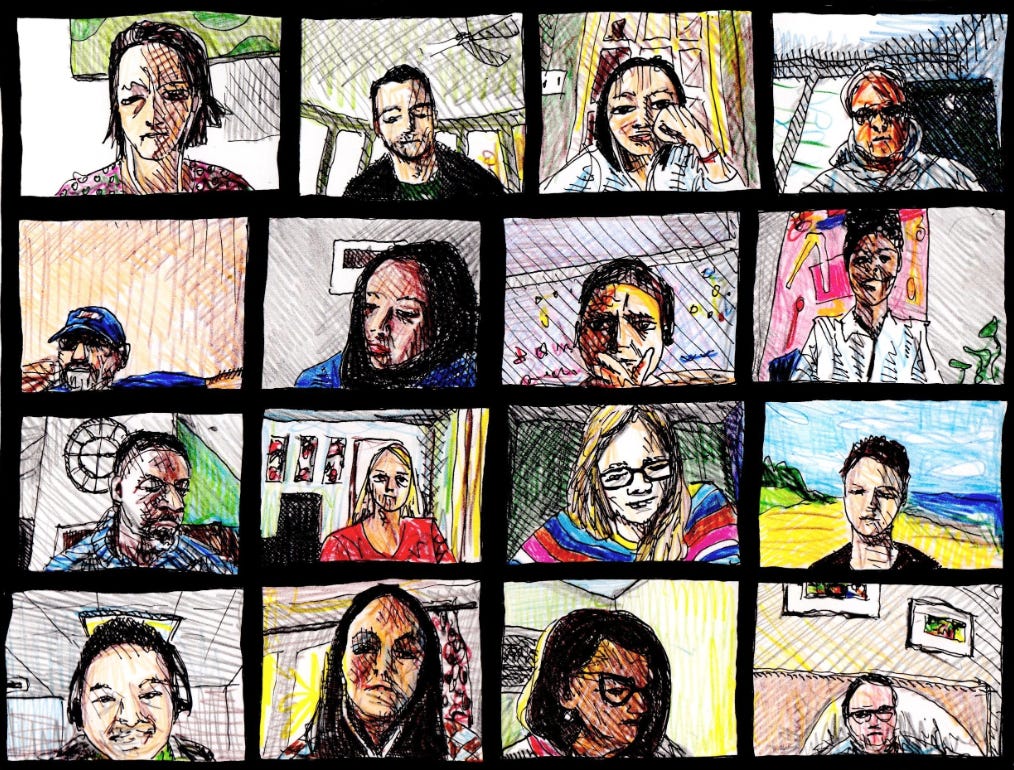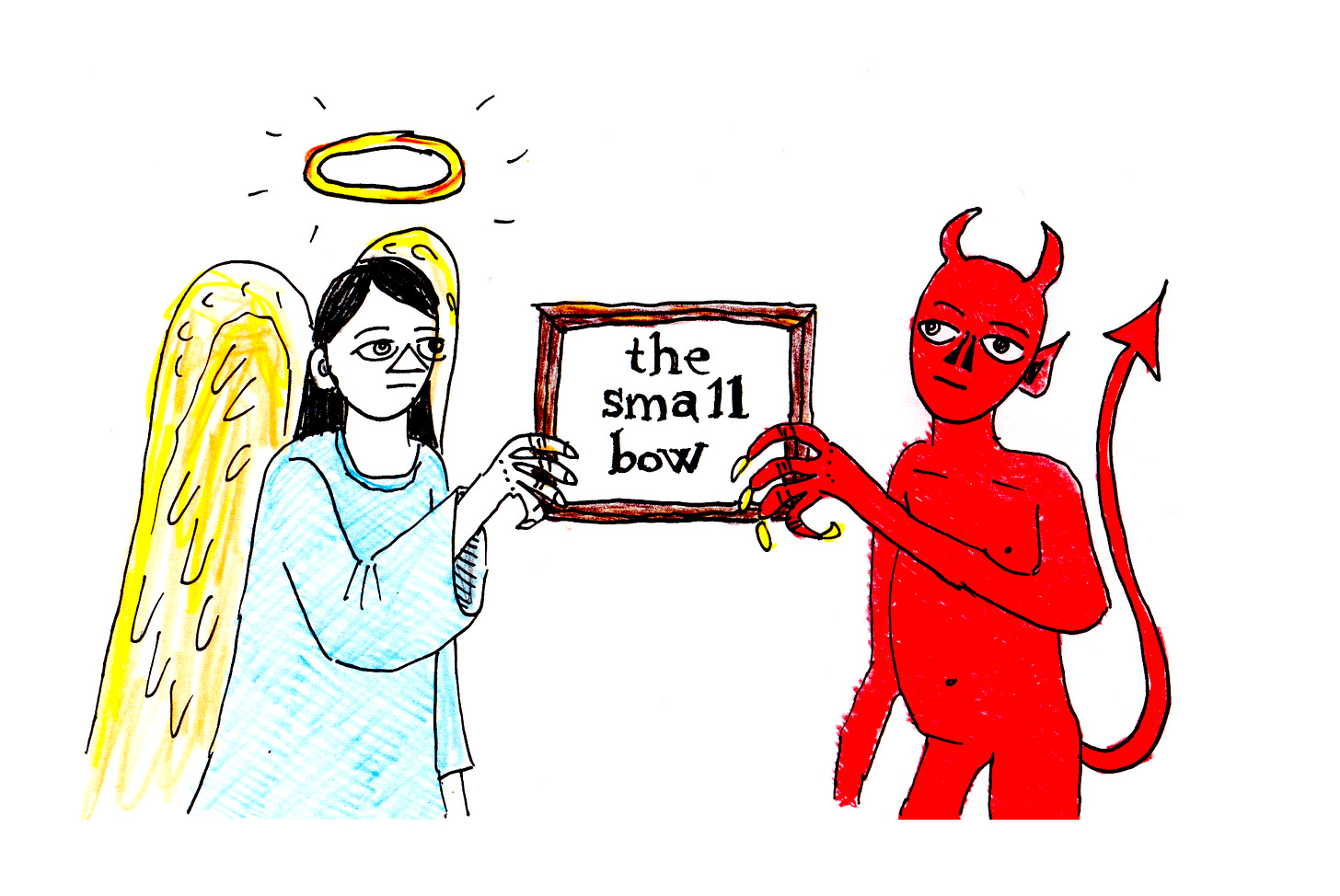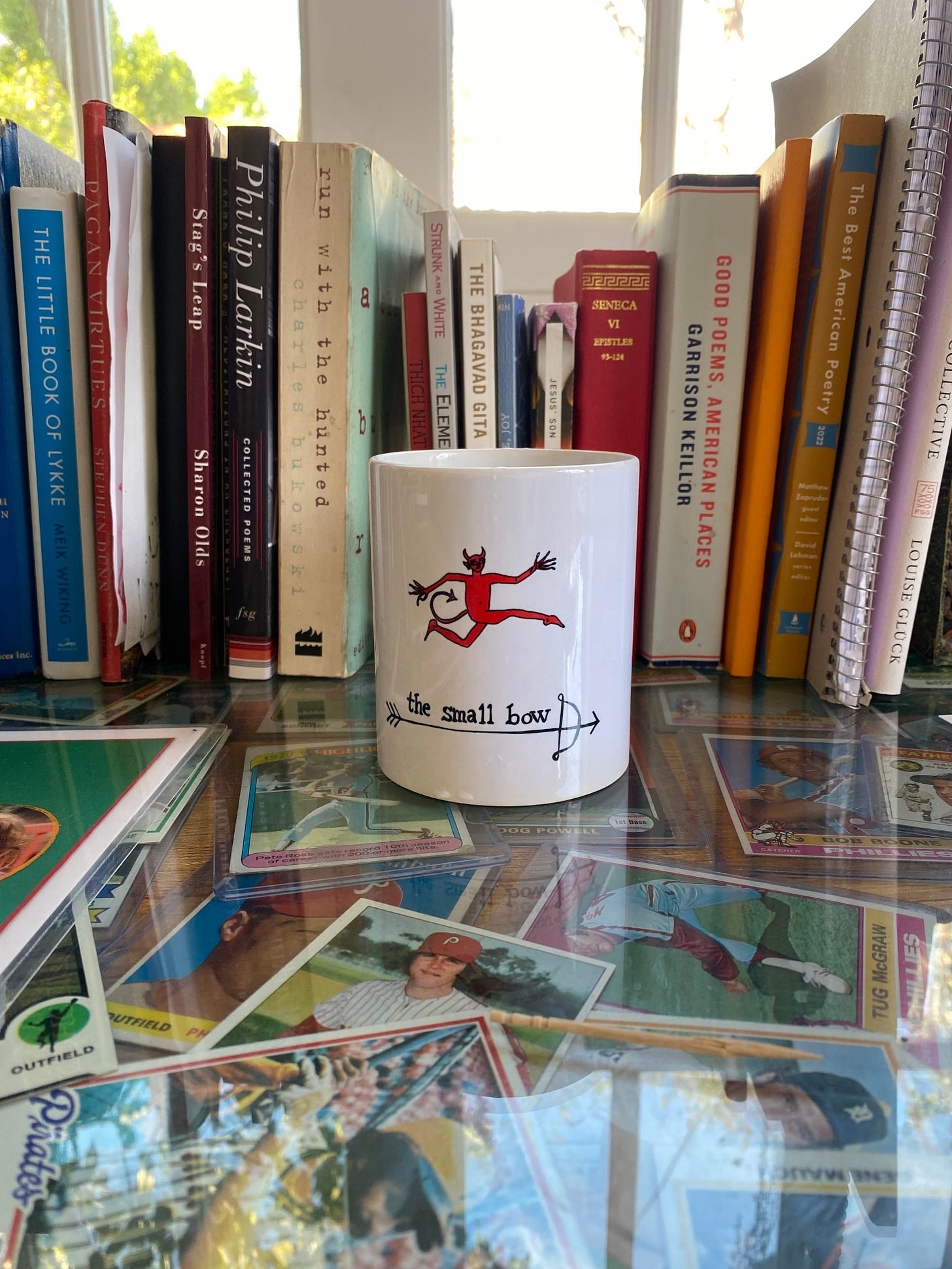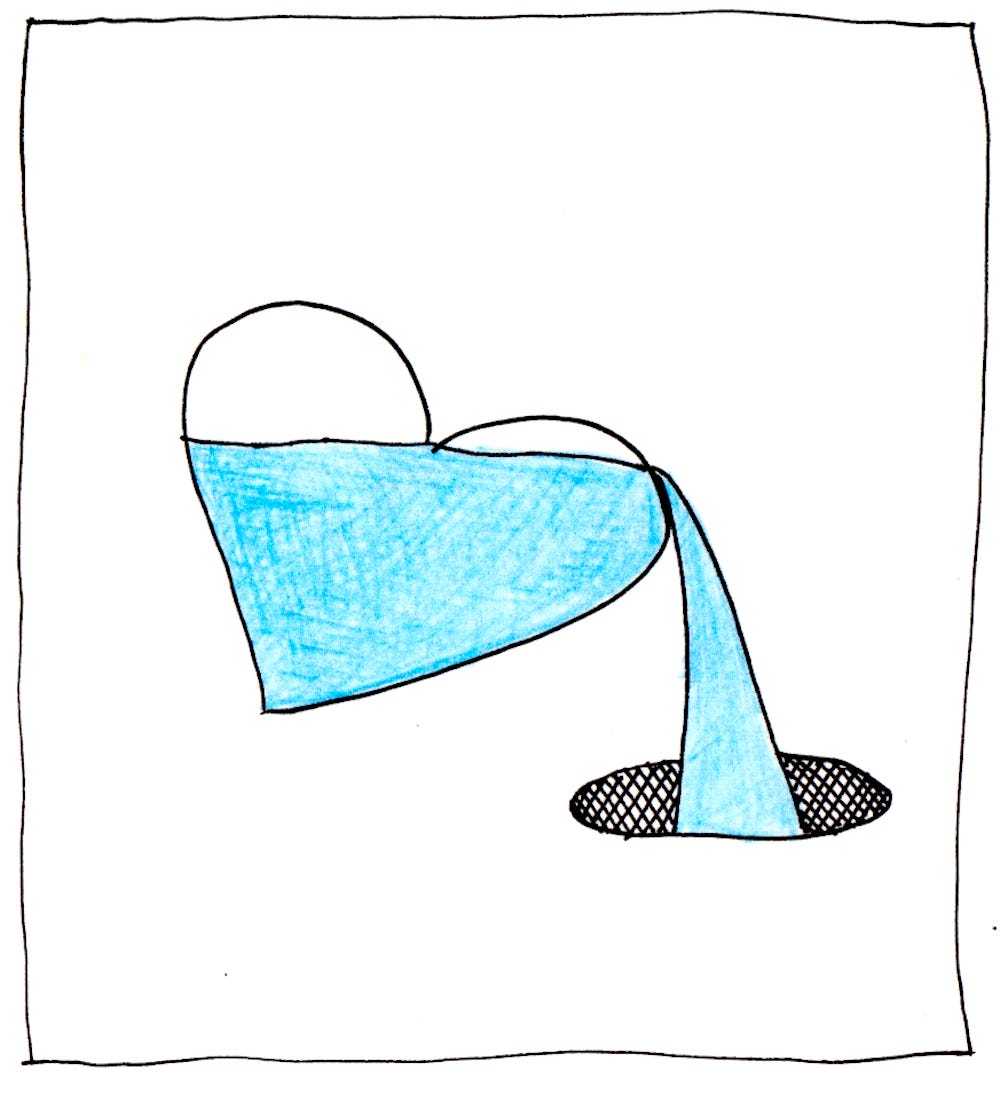The Diagnosis of Bipolar Can Mean So Many Things
An Interview with Jaime Lowe, author of "Mental"
If the cost of a subscription is prohibitive, or if you wish to send TSB to someone you love, contact us. We’ll happily pass along a free annual subscription to those who need it most.
We can offer free subscriptions as long as we continue to grow. Grab a paid subscription today if you’d like to be a part of that growth — spiritually and otherwise.
Originally published April 14, 2020
It’s Hard to Find People Who Trust People
By The Small Bow
A safe place to hide
This interview with Jaime Lowe, author of Mental was originally published April 14, 2020
Do you think a fellowship geared specifically toward mental illness would be beneficial? Why don’t bipolar people have their own version of AA?
I do think fellowship geared toward mental health would be great, more than great, essential! And I think it’s out there. The Fountainhouse model is one. Group therapy is another. I loved group therapy when I did it in high school. It was like a sacred friend group that didn’t exist in my actual day to day life. No one had preconceived ideas of me or had been burned by whatever craziness I had put them through. I LOVE my friends and family fiercely, they’ve had to endure a lot but they all had to experience some form of me unhinged. Being in a group or a place that is just about you and your issues, that’s a really nice thing, a luxury.
That said, I don’t think any fellowship exists in a real accessible way — like AA — because the diagnosis of bipolar can mean so many things. The severity of symptoms occupies such a wide spectrum. It can be hard to find a group where people trust each other fully; mental health is a lot harder to address on a peer-to-peer level because of that. I wish there were more of a network, a Zoom channel right now, that I could drop into and talk to people. But I don’t know where that is. I think that’s why I wrote the book (NOT plugging the book intentionally!), feeling like it was a really elaborate and complicated way of opening a conversation with a lot of strangers who have experienced similar things.
Do you think substance misuse and mental illness always go hand in hand? I think recovery needs to be handled differently if you’re a person with a mental illness who can't drink as opposed to whatever a normal person with a substance misuse disorder is (I’m asking this mainly for myself — I feel like I was more of an untreated person than a full-blown alcoholic, but I also know I can never, ever drink). Does it matter?
No. It doesn’t matter. I think one thing I learned is that you treat symptoms and behavior. It helps to have a diagnosis, it’s a relief, a fellowship (like you said earlier). But it doesn’t matter what you call it if your life is destroyed and you can’t function without treatment (of meds or eliminating drugs and alcohol). It doesn’t really matter why or what it’s called. You just have to proceed with what you’ve learned works for you and your survival. Always, there’s no normal. And everyone has some amount of mental health issues at some point. I have yet to meet a person who doesn’t. So, I guess I kind of think you’re talking about a unicorn — the alcoholic or drug addict that has no mental health problems. Neither exist.
How frequent is misdiagnosing? It takes a while to land on the perfect medication mix, but does it also take a while to land on the perfect diagnosis?
I hesitate to answer this question since I’m not a therapist or psychiatrist. Anecdotally, I think it happens a lot. But mostly because our diagnostic system is kind of fucked. We don't really know how much overlap there is with each category of crazy. That said, when I was 16 and diagnosed, my psychiatrist was like, yup, no question about it, this chick is manic. Then it took three weeks of being held in the psychiatric ward to accept medication — I thought they were trying to poison me. I think finding the perfect diagnosis is also likely a myth. I think it’s foundational and a place to begin. BUT, your life changes, your body changes, your hormones change and your symptoms change. I cannot wait until I go through menopause and get to discover how bipolar disorder changes for me then!
I’m having trouble with how to be open about my mental illness. I don’t know what to tell people because they get so freaked out when I say I’m being treated for bipolar disorder. How do I get more comfortable with who I am and what it’s about?
If you’re having trouble with being open about it, that’s totally ok. No one said you have to be open about it. A lot of people aren’t and that’s fine. If you want to tell someone or explain your behaviors or try to open up about it, I would say trust your instincts. If you trust the person, they’ll more than likely understand and want to know anyway. I’ve always been surprised by how many people really want to talk about mental health — their own and that of their loved ones. Most people have been affected in some way: either someone close has experienced some form of mental illness or they have. And generally, there aren’t enough spaces to honestly share stories and talk about it, so finding other people can be really helpful, all around, and that starts with opening up about it. Also, it takes time to get used to it and to fold it into the long list of things that may or may not ‘define’ you. Time, and getting used to being bipolar, makes you more comfortable in general.
That said, I might not be the best person to ask because it’s never occurred to me to NOT talk about it and I don't know why. I’ve always been open with friends and family and when people thought I was being flip I’ve had to say no, really I hallucinated shit and was in a ward and it was pretty fucking bad but I’m ok enough now! I will say that, professionally, I waited a long time to write about it because I wanted to work as a journalist covering other things and people before I became a girl who wrote a memoir about mental illness which has its own stigma. I knew eventually I wanted to write about it all but I wanted to get there on my own time. So now I’ve written essays, a book, and done radio with much of me out there in the world but, whatever, I think it helps, so I’ll continue until it doesn’t. I also think that as a journalist, I’m always grateful and shocked when people are willing to share their stories with me, so I figured I should/could share mine as well.
People who are freaked out by the words “bipolar disorder” might not know what that actually means, and by talking about it, if you want to, you can share what that means to you which is personal and different for everyone. Take your time. You’ll be comfortable when you’re comfortable.
What does boxing do for you?
I don’t even know. It’s a bit of both mystery and miracle. Gleason’s is a church of sorts, it gives me a break from my brain, something to focus on, people to hang out with, a smelly-ass place to hit things and meditate. Knowing I can do one thing and focus on it fully for a couple hours and not be interrupted by the k-hole of social media is bliss. Plus I love seeing my friends there. It’s maybe the mental health club we were searching for in the first question but not so explicit. Maybe that’s it, these kinds of groupings that aren’t as clearly delineated as AA. Ceramics, boxing, cooking, soccer, meditation, they’ve all been some kind of mental health workshop for me.
So how is quarantining treating you?
Last weekend I had the absolute shit-show breakdown that I should have had weeks ago. I was feeling a ton of pressure (work, life, end of the world kinda shit), and just kind of broke. On Saturday I imagined what would happen if I had an episode right now, in the midst of all of this. I imagined wagging my finger and saying, I told you, I predicted apocalypse, I told you we were all threatened by invisible evils, I told you we would need to stockpile food and prepare for the worst.
And then I imagined what might happen if I were truly manic. I grew more and more anxious until I got up Sunday morning and just started bawling. The heaving kind of crying. I was so worried about what might happen, the anxiety of it choking the reality that I was not having a manic episode. But what ifs can be crippling. They can also bring emotions that need to surface. It’s ok to be scared, I thought, that’s actually the correct response. Any response is correct. I was lucky, as always, in that I have a team of deep support. I decided I should tell my closest people what was going on so that they could watch for any signs of mania. I felt better after losing it; it felt better to crack. But fuck this is hard.
Have there been any other mental illness memoirs you’ve enjoyed?
That’s a tough question because — I think since I’ve experienced mental illness so intimately — I’m a little jaded about reading them. At first I really needed to and devoured Patty Duke’s and Kay Redfield Jamison’s books whole. But they were older and I couldn’t fully relate. I always think it’s funny when I start reading accounts about bipolar disorder and I’m like, right, you spent a bunch of money, predicted apocalypse, found Jesus, and wore a spangly tube top? Ya, me too. That said, Zack McDermott’s book Gorilla and the Bird came out the same day as my book and I feel a deep kinship with it. It’s harrowing and beautifully told. Elizabeth Wurtzel has always been a mental health idol because she is just an idol in general. There is something about my feelings towards her that are romanticized. She was such a good writer with such an unapologetic voice but still, I feel like there was so much glamour in what she did. I think she made mental illness attractive but I don’t know if that’s a great thing. She made me think I could do whatever the fuck I wanted even with pills and with a diagnosis and with being a mess. And I guess that’s … helpful? After I wrote Mental, I had to stop reading mental health memoirs so I’m not up to date. But I’ve heard Esme Wang’s book is great!
Mental can be purchased right here.
*****
ALL ILLUSTRATIONS BY EDITH ZIMMERMAN
ZOOM MEETING SCHEDULE
Monday: 5:30 p.m. PT/8:30 ET
Wednesday: 10 a.m. PT/1 p.m. ET
Thursday: 10 a.m. PT/1 p.m. ET (Women and non-binary meeting.)
Friday: 10 a.m. PT/1 p.m. ET and 4 p.m. PT/7 p.m. ET
Saturday: Mental Health Focus (Peer support for bipolar/anxiety/depression) 9:30 a.m. PT/12:30 p.m. ET
Sunday: (Mental Health and Sobriety Support Group.) 1:00 p.m PT/4 p.m. ET
*****
If you don't feel comfortable calling yourself an “alcoholic,” that’s fine. If you have issues with sex, food, drugs, codependency, love, loneliness, and/or depression, come on in. Newcomers are especially welcome.
FORMAT: CROSSTALK, TOPIC MEETING
We’re there for an hour, sometimes more. We’d love to have you.
Meeting ID: 874 2568 6609
PASSWORD TO ZOOM: nickfoles
Need more info?: ajd@thesmallbow.com
This is The Small Bow newsletter. It is mainly written and edited by A.J. Daulerio. And Edith Zimmerman always illustrates it. We send it out every Tuesday and Friday.
You can also get a Sunday issue for $9 monthly or $60 annually. The Sunday issue is a recovery bonanza full of gratitude lists, a study guide to my daily recovery routines, a poem I like, the TSB Spotify playlist, and more exclusive essays. You also get commenting privileges!
Other ways you can help:
BUY A COFFEE MUG FOR YOUR BOOKS
TSB merch is a good thing. [STORE]
or you can
or you can give a
that goes toward the production of the podcast.
Everything helps.
A POEM ON THE WAY OUT:
The Forms of Love
by George Oppen
*********
Parked in the fields
All night
So many years ago,
We saw
A lake beside us
When the moon rose.
I remember
Leaving that ancient car
Together. I remember
Standing in the white grass
Beside it. We groped
Our way together
Down-hill in the bright
Incredible light
Beginning to wonder
Whether it could be lake
Or fog
We saw, our heads
Ringing under the stars. We walked
To where it would have wet our feet
Had it been water.
— Poetry, May 1964





